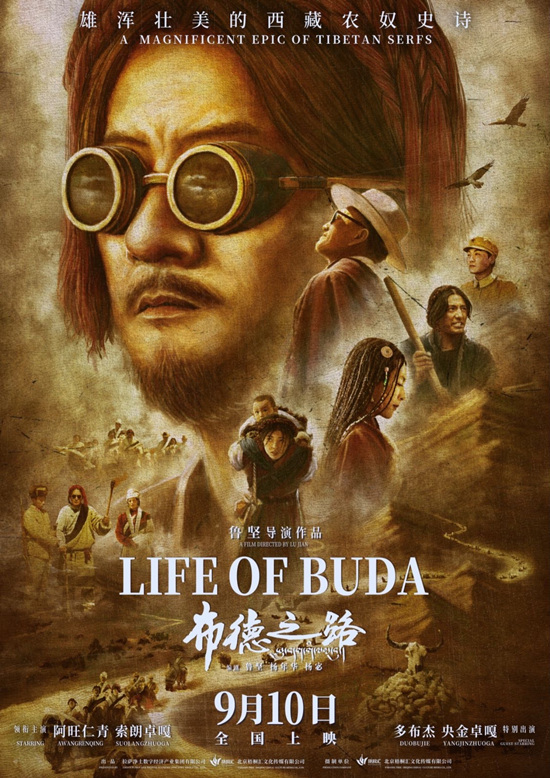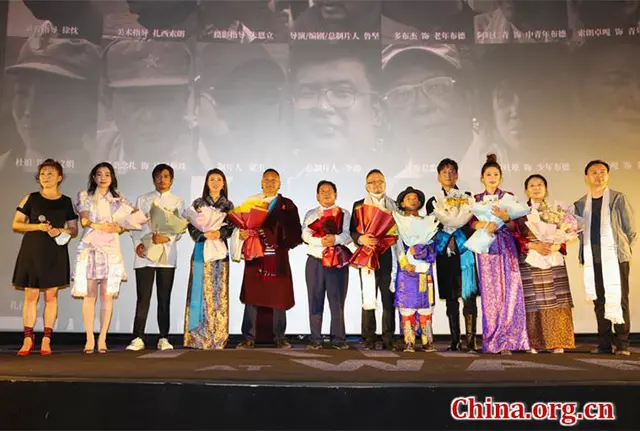A new biopic about one of China's national heroes, Buda, will hit domestic theaters on Sept. 10. The film follows the protagonist's extraordinary life journey through several eras.
Life of Buda, directed by Lu Jian, is based on the real story of the titular figure, who went from a Tibetan serf to a national grassland hero. The latter title was awarded to him by the Central Military Commission in 1965, making Buda an exemplifier of the Tibetan people's love for the country and opposition to separation.
I feel so proud for the outstanding actors in our film, Lu said at the film's premiere in Beijing on Sept. 3. The cast members are mostly local Tibetans, and the film is voiced in Tibetan, with Chinese and English subtitles.
The director said filming took the crew from the north to south in China's Tibet Autonomous Region, setting the epic story against spectacular Tibet landscapes. The film is also about the transformation of Tibet between the 1930s and 2005, capturing the end of feudal serfdom in the region and its move toward an era of socialism.
Buda, once a poor herdsman, embraced his new life after the peaceful liberation of Tibet in 1951 and began working at a local forestry farm. After he stood firmly against the reactionary troops during the armed rebellion in 1959, they brutally tortured him and gouged out his eyes. He was later rescued by the People's Liberation Army. The blind Buda still dedicated himself to the socialist cause and to the building of the Tibet Autonomous Region for the rest of his life. Actors Ngawang Rinchen and Dopgyal play Buda when he is young and old, respectively.
The director said he researched many historical documents and memoirs for references to reenact this specific history. I wrote a script of 30,000 words while collecting documents that totaled 3 million words, he said. Lu and his team also interviewed numerous people related to or familiar with Buda, including his wife and children.
Lu pointed out that Tibet-themed films are scarce, saying, I cherished this opportunity and tried my best. Though we encountered many difficulties and challenges when filming in Tibet, which is higher than 4,000 meters above sea level on average, this film is filled with our dreams and what we wanted to tell and express.

A poster for Life of Buda. [Photo courtesy of Lhasa Pure Land Digital Economy Industry Group]
Yangjen Drolkar, a veteran actress in her 70s and who starred in the film as Buda's mother, said she was grateful that the film provided opportunities for Tibetan actors, focuses on a Tibetan story, and spreads awareness of the national hero's legend to more people.
Life of Buda received a positive response from the audience at the premiere screening. Hu Lin, director of the standing committee of the municipal people's congress in Nagchu of the Tibet Autonomous Region, which was a filming location, also attended the premiere. He praised the film's ability to span and transcend the ages and its lofty vision, which makes it an excellent patriotic film.
 简体中文
简体中文

